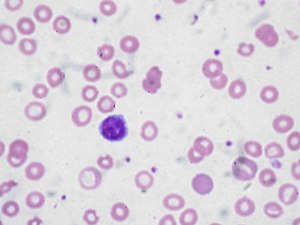
After six weeks trekking through some of most destitute and richest hospitals in India, one of CSU’s Global Social and Sustainable Enterprise (GSSE) student groups believes that they can save the lives of countless women around the world.
While it may seem like a Miss America sized dream, the plan is real and coming to fruition.
The Janani Team — named after the Hindi word for mother — has whittled down a large plan of creating birthing kits for pregnant woman, into a simple and cohesive plan to prevent new mothers from bleeding out after childbirth.
As part of the MBA GSSE program at CSU, the team formulated their plan and received support from CSU to get started. They originally thought they would market a device that would require new training for doctors and nurses but upon arrival in India, realized the issue was iron deficiency anemia — something that could be solved with medication.
“Prevention is easier than treatment,” said Janani member Maria Demirtshyan. “Our new idea is the Janani Iron Pill Pack, which is in calendar packaging — something like birth control pills with dates.”
Anemia is a blood disorder, which prevents your blood from clotting at the proper rates, causing excessive bleeding. It also makes it much harder for the body to retract the uterus after childbirth, according to team member John Striebel.
“The anemia rates in India are astronomical, they’re about 70 to 90 percent. All the doctors kept telling us they were 100 (percent),” said Grace Hanley, a team member specializing in pharmaceuticals. “(Anemia) is a really strong indicator for death.”
This type of anemia is simply an iron deficiency, which can be treated through a consistent dosage of iron pills. To restore proper hemoglobin levels, iron pills must be taken every day for three months — thus the plan to date each pill for a three month period.
“Grace actually came up with the idea,” Striebel said. “She kept forgetting to take her malaria pill, but she remembered to take her birth control properly and I remembered from my work experience that even educated people in the United States (forget) to take (medication) correctly.”
“There are iron pills that are being distributed, but the women aren’t being told why they need to take them. There are certain cultural misconceptions about it. They’re not taking the pills regularly,” Hanley said.
The group revamped the entire plan to focus on creating the product that would ensure adherence and quality for Indian women.
In India, doctors frequently choose the least costly product and they often have ingredients that cause digestive pain, further pushing women away from taking the medications, according to Demirtshyan.
“Scientists prove that if you are using calendar packaging, that the adherence to medication is much higher than if you are using a bottle of pills,” Demirtshyan said.
The team hopes to partner with a vitamin company, which can market the pills cheaply, but at high quality. Striebel’s initial cost analysis predicts a consumer price of about $3.50 to $4.50, a number that may change depending on who picks up the idea.
“People value what they pay for, even if it’s a little bit of money,” Hanley said.
“Everyone’s okay with taking a pill and it’s just one pill — there’s no medical intervention. She can do it at home, she does not need to have higher education,” Demirtshyan said.
The Janani Team is unconcerned about future profits for their endeavor.
“The impact this has to save a lot of lives maybe won’t make a lot of money or be a business solution, but I don’t think it’s anything worth quitting,” Striebel said.
The group hopes to partner with pharmacies in India that will help with trial runs of the pill packs, Striebel said.
By piloting the medication in a few areas and showing results, the project has the potential to be picked up by the World Health Organization (WHO). WHO can put the medication on a list that officially approves the pill pack for worldwide use, according to Streibel.
“It’s a simple solution for a big problem and it can be applied globally,” Hanley said.
Collegian Senior Reporter Mariah Wenzel can be reached at letters@collegian.com.






